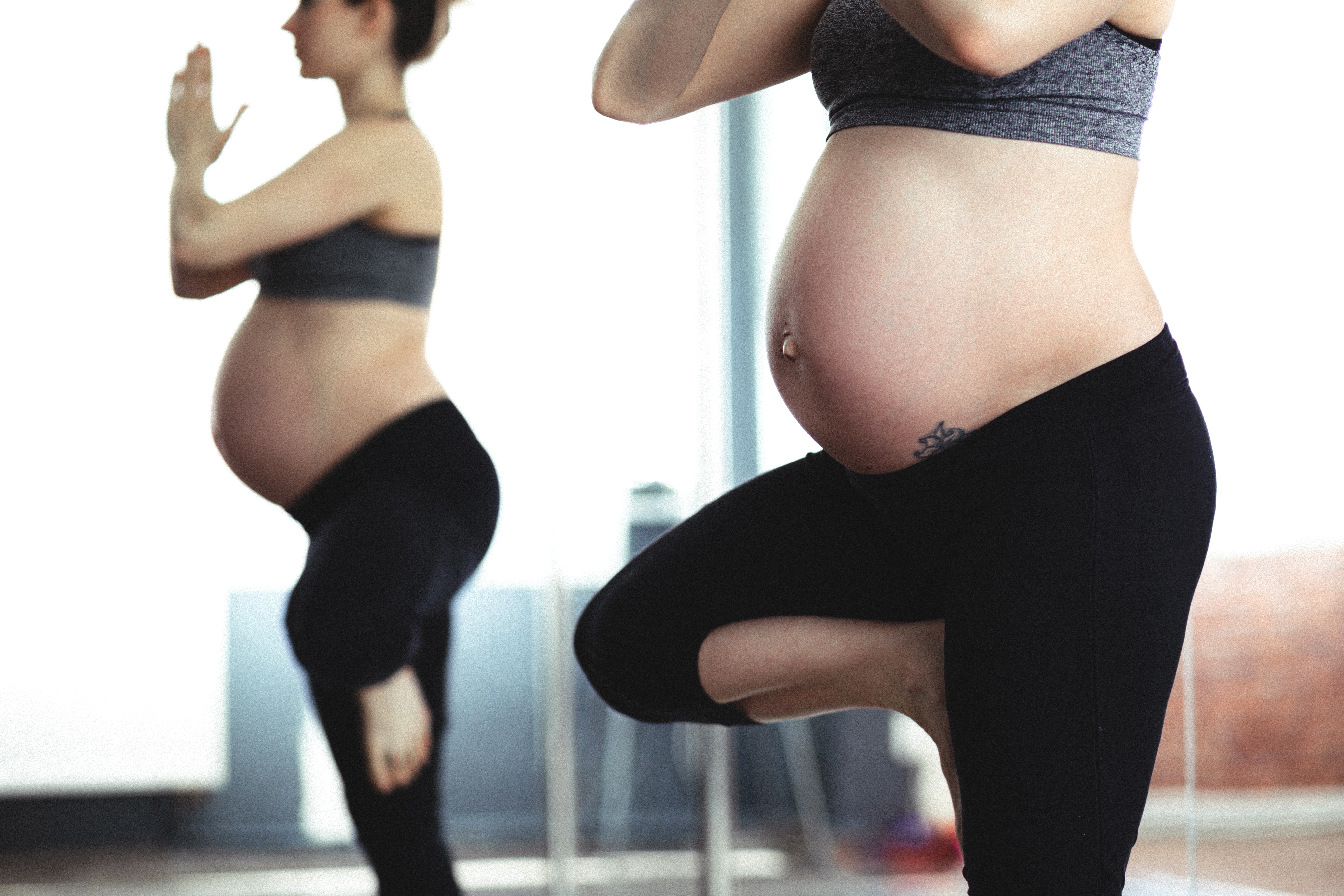Pregnant women are constantly being told what they should and shouldn’t do: don’t eat that soft cheese, do 17 kegels every hour, put away your skis for the season, read these 25 books. While many pregnancy suggestions are put in place for good reason, there are others that can be crossed off the list.
The most surefire way to receive more pregnancy fact than fiction is to find a medical care provider that you trust, and feel comfortable asking all of the questions. But for now, we’ll help provide more clarity by dispelling ten common pregnancy myths.
Myth #1: Pregnant Women Shouldn’t Eat Sweets
While large quantities of refined sugar is not great for the health of mama and baby, there is one sweet treat that can actually do more good than harm, when enjoyed in moderate doses: chocolate. A study of 1,681 women by Elizabeth Triche of the Yale Center for Perinatal, Pediatric and Environmental Epidemiology found that women who reported regular consumption of chocolate (about one 25 gram serving a day) had a lower risk of developing preeclampsia. In addition, a study published in Current Opinion in Clinical Nutrition & Metabolic found that dark chocolate and other flavonoid-rich foods might help to prevent preeclampsia. Can I get a hallelujah!
Myth #2: All Seafood is Off Limits
There is so much hubbub about the dangers of fish high in mercury that many women “with child” steer clear of all fish. But, while options like canned tuna and swordfish are best left off the menu, fish high in protein and omega-3, and low in mercury, can benefit the fetus’ developing brain and help the mother stave off occurrences of “pregnancy brain.” Salmon is a big winner in this category. And sorry ladies, sushi is a no-go as raw fish is a legit no-no.
Myth #3: It’s Essential to Know Everything That Could Go Wrong
Many pregnancy and childbirth books and courses fill the pregnant woman’s brain with “worst case scenario” information, claiming it will help them be prepared for anything. Unfortunately, this fearful knowledge often causes the stress and anxiety levels of many women to increase – and, the last thing pregnant women need is something else to worry about!
Fortunately, if pregnant women are going in for regular prenatal appointments with their medical care provider, and practicing a healthy lifestyle, they don’t need to be experts on the “what ifs.” It is the job of medical care providers to help patients know certain symptoms to look out for, and then guide them through any special circumstances that many arise.
Myth #4: Classical Music is The Ideal Tune for a Fetus
It’s long been believed that playing endless Mozart for a baby in-utero will up the chances of them becoming the second coming of Mozart. But in reality, the most important component of the music played for a fetus is whether it makes the mom feel good.
Music that makes a pregnant woman burst with feel-good emotions will help to release dopamine in her body, which creates a more positive environment for the baby. So, if classical music gets your good-time vibes flowing then by all means play it, but if you prefer to shake your rump to some hip hop, know that it’s equally beneficial. The bottom line is that you should listen to music because you enjoy it, not because you think it will make your baby smarter.
Myth #5: The Baby Should Be Born on the Due Date
A due date is determined by adding 280 days to the first day of your last period. Because menstrual cycles can range from 21 to 35 days, due dates are far from an exact science. But, many women still think of the due date as the day their baby “should” arrive, and when it doesn’t happen (only about 5% of babies are born on their due date) many women morph into a ball of stress.
A more peaceful label for when a baby will arrive is “due time.” The “due time” is composed of the two weeks before and two weeks after the due date – for most women, baby arriving anytime during that four-week period is normal.
Myth #6: An Ultrasound Can Determine Your Baby’s Exact Weight
The only way to know the exact weight of a baby is to put them on a scale. Because this can only be done after birth, a medical care provider cannot know a baby’s weight until after birth. But, medical care providers can utilize ultrasounds to get a guesstimate of the baby’s size and collect other important pieces of information, like the position of baby and approximate level of amniotic fluid.
Myth #7: You’re Eating For Two
This age old hall pass to eat whatever you want does many pregnant women a disservice. While pregnancy is certainly not the time to diet, it’s also not the time to give in to every salty-sugary-fried craving. It’s actually recommended that pregnant women only eat about 300 extra calories a day, which pans out to about 1,800 calories per day during the first trimester, 2,200 daily calories during the second trimester, and around 2,400 calories every day during the third trimester.
But, all calories are not created equal. It’s advised that these extra calories come from nosh that’s high in protein and omega-3 polyunsaturated fats and low in sugar and trans and saturated fats. It’s also crucial to ensure you’re eating foods rich in calcium, iron, and folic acid.
Myth #8: Every Pregnant Woman Experiences the Classic Symptoms
Morning sickness, dizziness, sore boobs, intense fatigue, and other such fun phenomenon are not necessarily in the cards for all pregnant women. All bodies process pregnancy differently and while some might experience the classic symptoms at the classic times, others will experience next to none, or a lot of them for a really long time. For example, some women don’t even notice they’re pregnant until many weeks in, and others have “morning sickness” all day every day, for nine months.
Myth #9: Only Mild Exercise is Acceptable
While it’s crucial to consult with your medical care provider about your exercise regime as soon as you know you’re pregnant, many will inform you that you’re good to continue your regular exercise routine until your third trimester, as long as it doesn’t involve contact sports and lying on your back. While you may still choose to tone down your sweat sessions, you don’t have to live in fear that going for a light jog will jiggle your baby out. When you reach your third trimester, have another powwow with your doc to get up to date on any new guidelines they may have.
Myth #10: Eating Three Full Meals a Day is Best
This myth should be thrown out the window, as heartburn, nausea, and indigestion – some of the most unpleasant pregnancy symptoms – can be triggered by eating large meals, even if they’re super healthy. Instead, pregnant women should opt for five to six small meals spread throughout the day. These small meals not only help prevent the fore-mentioned symptoms but can also aid in the maintenance of steady blood sugar levels.
The gist: take all the advice and old-wives tales that are thrown at you with a grain of salt and go to your medical care provider for the final word, as they know your exact medical history and are qualified to guide you through a happy and healthy pregnancy.











































